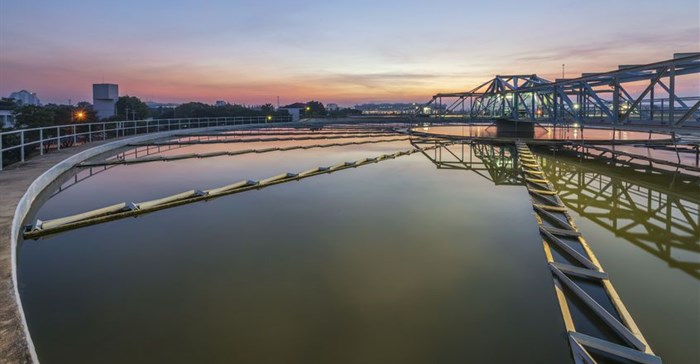
Top stories
More news




















In this regard, significant transformation of production chains and consumption patterns is required to keep materials circulating in the economy for longer. While there are some elements of circularity in South Africa, such as recycling and composting in the linear economy, a circular economy goes beyond the pursuit of waste prevention and waste reduction to inspire technological, organisational and social innovation across and within value chains.
Regions that have made significant progress in promotion of the circular economy are the European Union, China, Japan, South Korea and parts of the USA. Through transitioning to a circular economy, Europe predicts a doubling of economic benefits, 11% growth in average disposable incomes and halving of carbon dioxide emissions. While there are significant benefits, transforming the linear economic model that has been dominant since the industrial revolution is a big challenge which entails transformation of current production and consumption patterns.
Innovative transformational technologies, such as digital and engineering technologies, in combination with creative thinking, have been identified as factors that can drive fundamental changes across entire value chains. Such a major transformation would, in turn, result in significant impacts on the economy, environment and society, with understanding of such impacts by researchers and policy-makers crucial in designing future policies.
For the South African water sector, transitioning to a circular economy is in line with the United Nations Sustainable Development Goals (SDGs). In this regard, water has a dedicated goal in SDG6 and its attainment will be reliant upon contributing to and benefiting from the attainment of other SDGs, most notably in the context of the circular economy, SDG12. This interdependence across goals manifests at a national level in highlighting the need for greater cooperation amongst sectors, incentivised innovation and enabling meaningful engagement with citizens.
Although the South African water sector has not yet fully transitioned to a circular economy, the need to respond to various challenges has placed the sector on the road to a circular economy, with a paradigm shift underpinned on innovation. In this regard, water utilities have been early adopters of technologies and business practices that support the circular economy in response to the current sector challenges. Furthermore, impending regulatory environments and opaque market conditions have been identified as the main obstacles for the water sector transitioning fully to a circular economy.
Despite these challenges, within the man-made water cycle, wastewater is a carrier of 50% to 100% of waste resources lost mostly as unrecovered water, energy and materials. The wastewater sector is also responsible for 3% of electricity consumption globally and accounts for about 56% of the operational carbon footprint of urban water systems. Studies have shown that energy efficiency coupled with generation in the wastewater sector can result in energy savings as high as 78%. Additionally, the carbon in wastewater can be recovered as high value by-products while nutrients can be used in agriculture, thus reducing the global environmental impact of their industrial production.
To define a clear role for water utilities in transitioning to a circular economy, the International Water Association developed framework identifies three key interrelated pathways to achieving circular economy principles in the water sector as water, material and energy pathways. The water pathway needs to be developed as a closed loop, with diversified resource options, efficient conveyance systems and optimal reuse as three key factors. Under the materials pathway, resource recovery from wastewater operations must be able to compete with other products on the market for successful incorporation into the circular economy. On the other hand, the objective of the energy pathway includes reduction of carbon-based energy consumption and increased renewable energy production and consumption, thereby contributing to the zero-carbon emissions initiative.
Generally, the main factors that drive and enable the transition of the water sector to a circular economy are consumers, industry, regulation, infrastructure, urban and basin economies. Water utilities therefore need to anticipate, respond to and influence these factors in order to accelerate the pathways to achieving a circular economy. The challenge for utilities is to shift these factors from traditionally enabling a conventional linear economy model to a circular economy model. In transitioning to a circular economy, water utilities also need to change their current way of operation and seek new management approaches, partnerships and business opportunities.
Technology and innovation play a pivotal role in the required paradigm shift. Of significant importance are innovative technologies that can process multiple waste streams, generating energy and other high value products with minimal waste products thereby contributing to all three circular economy pathways. In this regard, through adoption of innovative waste to energy technologies, wastewater treatment plants can become loop closing bio-refineries and transform into future wastewater resource recovery facilities in support of the circular economy.
While the global community has taken some steps in promoting a circular economy, the South African water sector has not clearly laid out any strategies or policy to transition to a full circular economy, despite benefits having already been demonstrated in regions and sectors where a circular economy has been implemented. Moreover, implementation of circular economy principles is also in line with the United Nations Sustainable Development Goals, as well as the Paris Agreement on climate change to which South Africa is a signatory. Thus, it is prudent for the South African water sector to recognise the role of innovation in catalysing the required paradigm shift, and formally develop strategies and policies that promote circular economy principles in order to benefit economically, socially and environmentally.